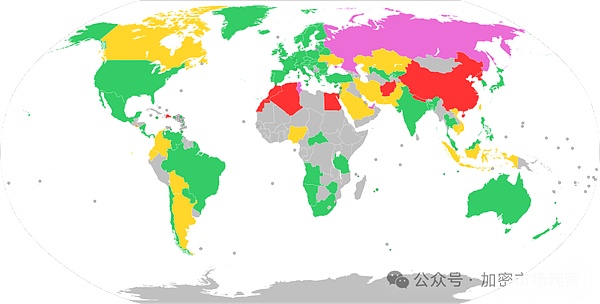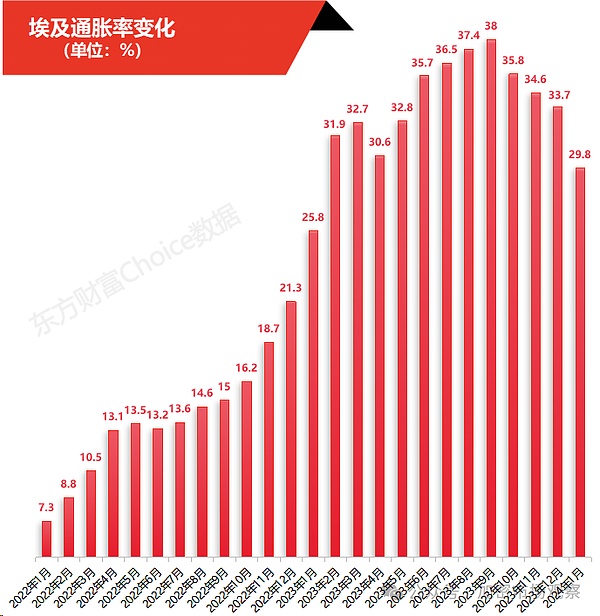With Russia announcing the legalization of mining a few days ago, there is now one less country cracking down on Bitcoin.
Someone made a picture showing the attitude of the world towards Bitcoin:

The various colors in the above picture represent the legal status of Bitcoin in that place:

This picture is actually a bit outdated, Russia should now be considered yellow.
From the map, the main red banned countries are:
China, North Korea, Afghanistan, Egypt, Algeria, Morocco, etc.
No country in Europe or America has banned it, and the countries that have issued bans are mainly in Asia and Africa.
Everyone should be more clear about the situation in China. Lao Wang will tell you why Bitcoin is banned in other countries.

Originally, Bitcoin was legal in Afghanistan, but after the Taliban regained power in Afghanistan in 2021, because some Afghans began to use cryptocurrencies to save funds and transfer funds abroad using cryptocurrencies, the Central Bank of Afghanistan implemented a cryptocurrency ban in August 2022:
"The Central Bank has issued an order prohibiting all money changers, individuals and merchants from using Bitcoin, a fraudulent digital currency, for transactions."
Egypt has banned cryptocurrency mining and operations since 2018, citing a statement from Dar Al-Ifta that blockchain operations violate Islamic law because they are similar to gambling or speculation. This fatwa was issued in January 2018 and became legally binding.
The Central Bank of Egypt (CBE) also issued a warning against all types of cryptocurrencies again in 2022. Violators may face imprisonment. The CBE statement pointed out that its laws "prohibit the issuance, trading or promotion of cryptocurrencies, the creation or operation of platforms for trading, or related activities."
However, Egypt has not had a good time. The inflation rate has remained at an exaggerated high of 30% in the past two years, and the exchange rate of the Egyptian currency has also dropped by 40% in a year.

Blindly guessing that the real motive for banning Bitcoin is still because of domestic inflation and other reasons, fearing that ordinary people will transfer their assets.
Morocco and Elgeria also issued bans around 2018, but the inflation in these two countries is still relatively stable, and the reasons are basically the same as before:
"Virtual currency is a currency used by Internet users through the Internet. It is characterized by the lack of physical support such as coins, banknotes, checks or credit card payments."
But according to reports, government officials in these two countries have recently changed their policies on cryptocurrencies to "wait and see", and maybe the ban will be lifted after a while.

For example, as early as 2020, Dakhla, the southern and windiest region of Morocco, has implemented the first blockchain-driven wind farm, and the excess energy from these farms powers the crypto mining operations there.
 Huang Bo
Huang Bo










